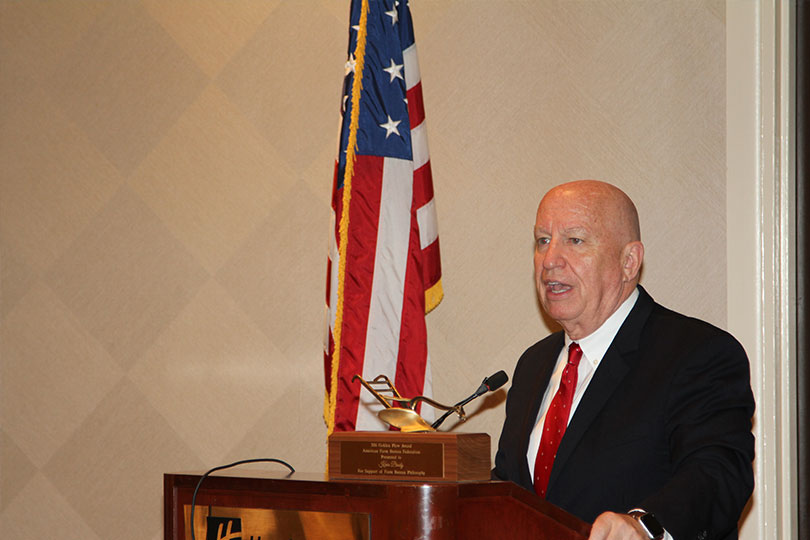By Jessica Domel
Multimedia Reporter
The future of the American tax code is up for debate this week as the House Ways and Means Committee examines a Republican proposal for sweeping tax reform.
Congressman Kevin Brady of Texas, who is chairman of the committee, introduced the potentially historic legislation.
“We face a monumental challenge of our own—coming together to fix a tax code that has become just as broken, complex and unfair as the one President (Ronald) Reagan and Congress overhauled in 1986,” Brady said. “Our journey to a tax code built for growth of jobs and paychecks that leapfrogs America back into the lead worldwide has been a long one.”
The committee has dedicated a substantial amount of time, energy and work to delivering comprehensive tax reform to the American people, Brady said.
More than 40 hearings were held on all aspects of tax laws under three different chairmen with discussion involving both Republicans and Democrats.
“All of our efforts have led to this one moment—to this markup of the Tax Cuts and Jobs Act,” Brady said. “We stand on the doorstep of delivering the most sweeping tax overhaul in more than 30 years.”
But the proposed legislation isn’t about the committee, Brady said. It’s about providing long-overdue relief to American workers, families and job creators.
“It’s about making America’s economy stronger than ever by delivering more jobs, fairer taxes and bigger paychecks across the nation,” Brady said.
Under the Tax Cuts and Jobs Act, a middle-income family of four making $59,000 per year will see a tax cut of nearly $1,200, according to the plan.
“That means you get to keep more of what you earn to save, spend, or invest however you see fit,” Brady said.
Democrats met the legislation, which also calls for a repeal of the death, or estate, tax over the next six years, with harsh criticism.
Congressman Richard Neal of Massachusetts called the tax plan a gamble on an economic outlook that might not come to fruition. He said House Democrats should have been a part of the process as well.
Congressman Lloyd Doggett of Texas, ranking member of the House Ways and Means Tax Policy Subcommittee, introduced a motion to postpone the hearing until next Tuesday.
“Our objective is insight, not delay,” Doggett said. “Incredibly, for this legislation of such magnitude, after so many years, this plan has never had a single public hearing, nor has any member of the Trump administration (had) the courage to come before the committee and answer questions about this bill.”
Doggett also cited concerns that the president’s businesses might profit from changes to the tax code. The release of the “Paradise Papers,” concerning offshore tax havens, was also an issue, according to the congressman.
“These explosive revelations once again sound the alarm about the inequities of our tax system and disturbing amounts of tax avoidance,” Doggett said. “When the privileged avoid their taxes, individuals, small businesses and domestic businesses are forced to pick up the tab for vital government services.”
The motion was defeated in a 16-24 party line vote.
Congressman Sandy Levin of Michigan told the committee he believed people making between $20,000 and $40,000 annually would actually see a tax increase.
Meanwhile, Texans on the committee expressed their support for the plan, which aims to lower individual tax rates for low and middle-income families. The legislation also calls for an expansion of the Child Tax Credit and preservation of the Child and Dependent Care Tax Credit.
“I’m encouraged to see that the bill would provide tax relief for working families and the middle class as well as much-needed pro-growth business reforms,” a statement from Congressman Sam Johnson of Texas said. “I’m also encouraged to see some of my commonsense bills included in the legislation. I look forward to taking the next step toward tax reform, and I will continue to do everything I can to make this bill the best it can be. Reforming America’s complicated and broken tax code is too important to not get right.”
If passed, the measure would also reduce the corporate tax rate to 20 percent and would protect the ability of small businesses to write off the interest on loans.
Businesses would also be able to write off the full cost of new eq

